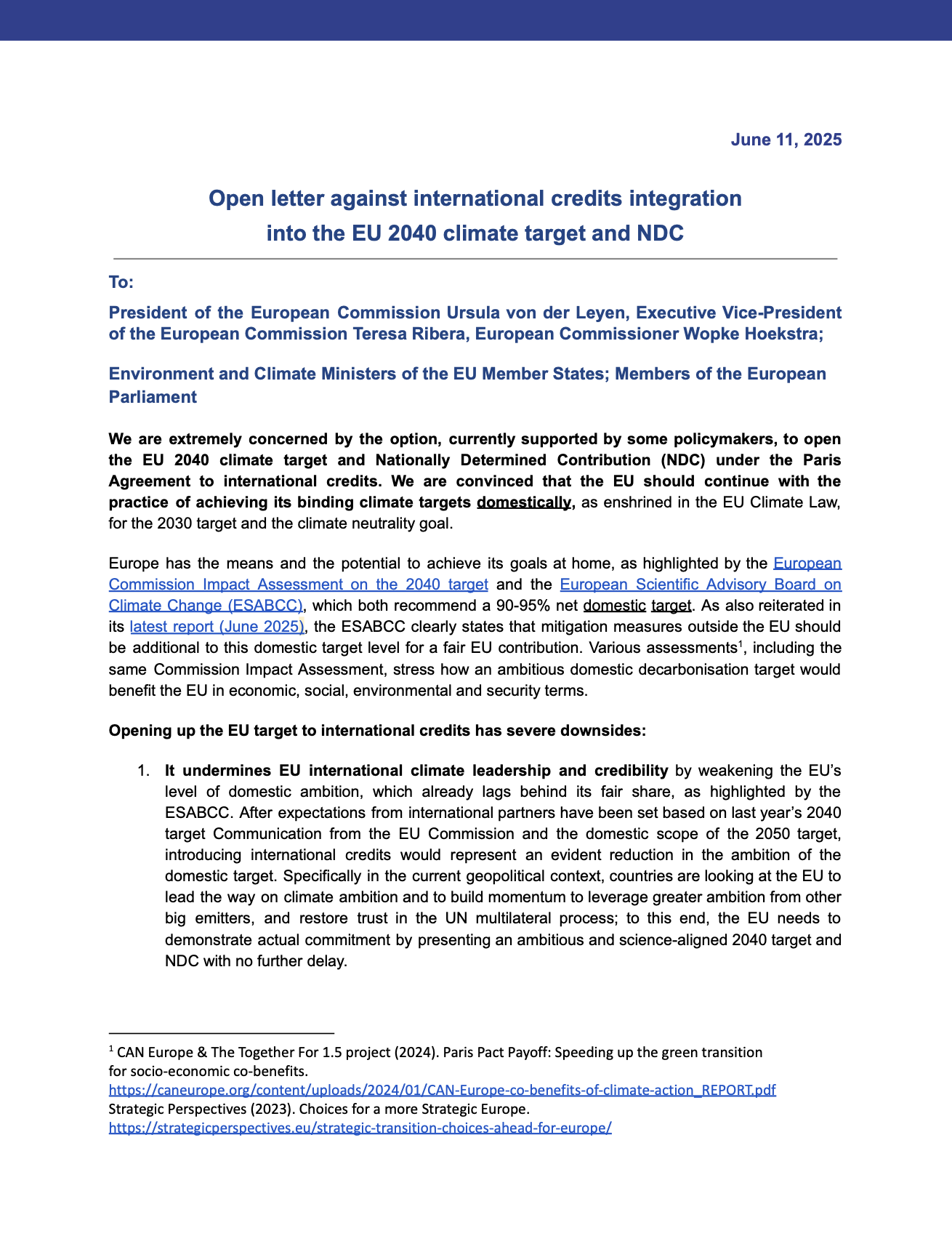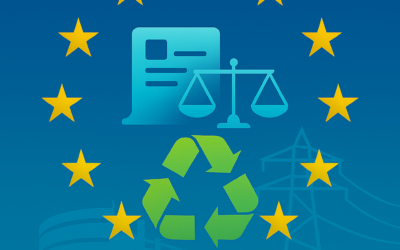Open letter against international credits integration into the EU 2040 climate target and NDC
Sandbag has co-signed a joint open letter initiated by CAN Europe and Carbon Market Watch, alongside a broad coalition of NGOs, think tanks, and climate experts. The letter urges EU policymakers to reject proposals that would allow the use of international carbon credits — governed under Article 6 of the Paris Agreement — in meeting the EU’s 2040 climate target and Nationally Determined Contribution (NDC).
The signatories warn that shifting from domestic action to external offsets risks weakening EU climate ambition, undermining international credibility, and delaying essential structural change. The letter calls for a fully domestic, science-aligned target of at least 90% net emissions reductions by 2040.
About the open letter
The letter responds to growing political signals that international credits could be introduced into the EU’s 2040 climate framework. This would mark a major departure from the current EU Climate Law, which mandates that targets be met primarily through domestic action.
Key Findings
- Undermines EU climate credibility
The inclusion of international credits would weaken the ambition of the EU’s domestic climate targets, risking the erosion of its hard-won leadership on climate action.
- Environmental and human rights risks
Article 6 credits have been linked to weak safeguards and real-world abuses. Early deals under this framework show troubling signs of poor quality and unverifiable emissions savings.
- Fails to deliver real emission reductions
Offsets only shift emissions elsewhere and delay structural decarbonisation at home. A systemic review found that just 16% of credits reflected actual emissions cuts.
- Not a form of climate finance
Buying credits does not constitute a climate finance contribution. It is a financial transaction — not a substitute for real EU action.
- Increases long-term costs and uncertainty
Relying on credits would mean recurrent costs and financial outflows, locking in polluting investments and stranding future assets.
Steel labelling: Beyond the sliding scale
As EU policymakers debate how to certify low-carbon steel, Sandbag’s new briefing analyses the “sliding scale” method — and outlines why it may hinder rather than help decarbonisation. A new model is proposed based on product-specific benchmarks, multi-tier ratings, and circularity incentives.
Scrap Steel at Sea: How ship recycling can help decarbonise European steel production
As Europe seeks to decarbonise its steel industry, a new Sandbag report highlights an overlooked solution: high-quality scrap steel from retired ships. With up to 15 million tonnes of certified scrap available annually, ship recycling could meet 20% of EU steel scrap demand — if policy gaps are addressed.
Sandbag’s feedback to the call for evidence on the Circular Economy Act
Sandbag’s submission to the European Commission’s Circular Economy Act Call for Evidence highlights the importance of improving steel scrap quality, setting minimum recycled content requirements, and aligning carbon incentives to enhance circularity across the EU industrial sector.




